A question at the core of current United States policy is causing waves of dissent throughout the country: Is “Medicare for All” politically feasible for the United States to implement? Professor William Hsiao, GHELI’s Senior Faculty Scholar and a leading global expert on health systems and universal coverage, has been active in the press as the topic becomes a primary focus for the public and policy makers.
Professor Hsiao has been a leading economist in developing national health systems for more than forty years. He has been actively engaged in designing health system reforms and universal health insurance programs for many countries, including the United States, Taiwan, China, Colombia, Poland, Vietnam, Hong Kong, Sweden, Cyprus, Uganda, and most recently for Malaysia and South Africa. He also designed a single payer universal insurance model for the state of Vermont which was intended to serve as a vanguard for the United States. Vermont passed a law based on his recommendations.
Politico, a leading global source of news, politics, and policy recently featured Professor Hsiao for an interview on what “Medicare for All” means in the context of health system development and the United States. In the interview, Hsiao emphasizes the “fear factor” which contributes to the hesitancy in moving forward on this policy, even though research has shown that it would be more cost-effective than the system that we currently have in place, where around $1 trillion dollars is wasted on inefficiencies, excessive administrative expenses, duplication of services, and fraud and abuse in insurance claims.
In a recent interview on WBUR’s Morning Edition, hosted by Bob Oakes, Hsiao joins two other health system experts to discuss the possibility of a single payer health care system. The experts agreed that the current system is extremely inefficient—among all advanced nations, the U.S. is the only one that does not provide universal health coverage. Hsiao emphasizes that changing the system will also require a change in culture with a greater focus on primary care and prevention instead of treatment; our current system enforces a cycle where patients often get too sick, need treatment, and then are introduced into the health system, adding to the burden of costs. The expert panel also discussed the variety of ways in which it is possible to achieve universal health care; the best option is neither “all good” or “all bad”, as has been the tendency with a majority of recent policy debates. It is not about keeping our system in place or moving towards one that is a “Medicare for All” single payer system. There are countries that are leading by example that fall somewhere in between, who have achieved universal health coverage—that too, with significantly lower costs than the current system of the U.S., and high rates of public satisfaction. While the current political circumstances have been testing to the health system at best, there are many areas of compromise and adjustment that can still be reached.
A forthcoming article in the January/February 2020 issue of Foreign Affairs features Professor Hsiao’s recent work with a focus on the U.S. health care system, and includes a set of recommendations considered crucial for improving coverage, affordability, and efficiency.
To learn more about universal health coverage, delve into our resource pack or explore key resources about health systems in our repository.
